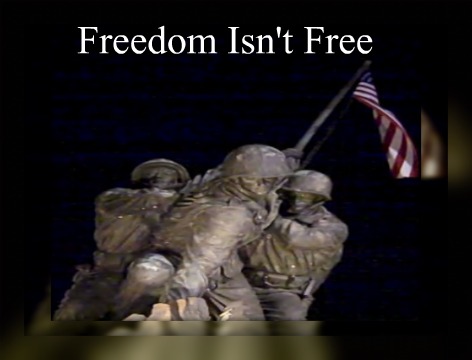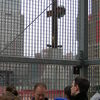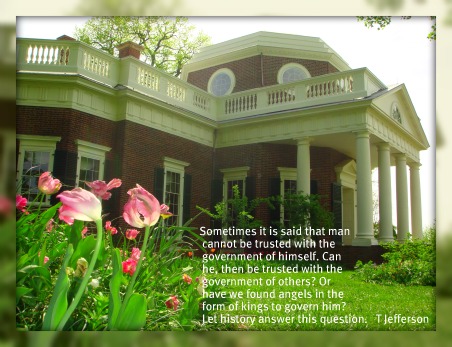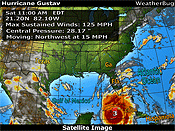Be sure to add this site to your favorites as this site is packed-full of incredible links
and visit our podsite
Seventeenth Century sources which influenced our founders Colonial Documents, Precursors to the U.S. Constitution http://oll.libertyfund.org/Texts/LFBooks/Lutz0397/ColonialOrigins/0013_Bk.html
Colonial Maps http://www.libs.uga.edu/darchive/hargrett/maps/colamer.html
Charters of all the Colonies http://www.yale.edu/lawweb/avalon/states/statech.htm
Dictionaries --http://www.chass.utoronto.ca/english/emed/patterweb.html
Letter of James VI to various Scottish Lords, 1600(?)http://www.gunpowder-plot.org/archives/james72.htm
Letter of James VI to James Hamilton, 1600 http://www.gunpowder-plot.org/archives/james73.htm
Letter of James VI to the Earl of Mar and Edward Bruce, early February 1601 http://www.gunpowder-plot.org/archives/james75.htm
Letter of James VI to the Earl of Mar and Edward Bruce, mid-February 1601 http://www.gunpowder-plot.org/archives/james76.htm
Letter of James VI to the Earl of Mar and Edward Bruce, 8 April 1601 http://www.gunpowder-plot.org/archives/james78.htm
Queen Elizabeth's Farewell (1601) http://darkwing.uoregon.edu/%7Erbear/eliz1.html
Landing on Cape Cod (1602) http://www.usgennet.org/usa/topic/preservation/epochs/vol2/pg47.htm
The Works of King James I http://jesus-is-lord.com/kinginde.htm
Politica, Althusius (1603) This treatise of political philosophy by a Dutch Reformed Protestant contains all the principles that were later embraced by the founders of the United States. http://www.constitution.org/alth/alth.htm
Voyages, Samuel de Champlain (1604)
A Counterblast to Tobacco (1604) King James I
Primary Sources Pertaining to the Gunpowder Plot (1605) http://www.gunpowder-plot.org/archives/document.htm
The First Virginia Charter (1606) http://odur.let.rug.nl/%7Eusa/D/1601-1650/virginia/chart01.htm
Instructions for the Virginia Colony (1606) http://odur.let.rug.nl/%7Eusa/D/1601-1650/virginia/instru.htm
Observations Gathered out of 'A Discourse of the Plantation of the Southern Colony in Virginia by the English'," by George Percy (1606) http://etext.lib.virginia.edu/etcbin/jamestown-browse?id=J1002
Works of Francis Bacon, Identified by Jefferson as one of his three most profound influences. http://www.luminarium.org/sevenlit/bacon/baconbib.htm
Works of Francis Bacon (facsimile)
Works of Shakespeare http://www.bartleby.com/70/
Primary Sources Pertaining to Virginia http://www.virtualjamestown.org/fhaccounts_date.html
The Settlement at Jamestown, John Smith (1607) Including the famous account of Smith being saved by Pocahontas. http://www.nationalcenter.org/SettlementofJamestown.html
The Founding of Jamestown (1607) http://www.usgennet.org/usa/topic/preservation/epochs/vol2/pg49.htm
The Foundation of Quebec, Samuel de Champlain (1608) http://www.fordham.edu/halsall/mod/1608champlain.html
A Discourse of Virginia (1608) Edward Maria Wingfield http://etext.lib.virginia.edu/etcbin/jamestown-browse?id=J1023
Hudson's Discovery of the Hudson River (1609) http://www.usgennet.org/usa/topic/preservation/epochs/vol1/pg168.htm
Full Text of Robert Juet's Journal (1609)
The Second Virginia Charter (1609) http://odur.let.rug.nl/%7Eusa/D/1601-1650/virginia/chart02.htm
Champlain's Battle with the Iroquois (1609) http://www.usgennet.org/usa/topic/preservation/epochs/vol1/pg179.htm
John Smyth's Confession (1609) the religion of a Baptist. http://members.tripod.com/baptistdocuments/short_confession_of_faith_by_joh.htm
King James' Speech on Divine Right (1610) http://history.wisc.edu/sommerville/351/Jamesdrk.htm
The Church At Jamestown, William Strachey (1610) http://smith2.sewanee.edu/courses/391/DocsEarlySouth/1610-WilliamStrachey.html
The Third Virginia Charter (1612) http://odur.let.rug.nl/%7Eusa/D/1601-1650/virginia/chart03.htm
For the Colony in Virginea Britannia: Lawes Divine, Morall and Martiall (1612) http://etext.lib.virginia.edu/etcbin/jamestown-browse?id=J1056
Good News From Virginia, Alexander Whitaker (1613) http://smith2.sewanee.edu/courses/391/DocsEarlySouth/1613-AlexWhitaker.html
Good News From Virginia (1613) http://etext.lib.virginia.edu/etcbin/jamestown-browse?id=J1024
Relation of Virginia (1613) Henry Spelman, an account of a massacre by Powhatan http://etext.lib.virginia.edu/etcbin/jamestown-browse?id=J1040
A Plaine Description of the Barmudas, Now Called Sommer Ilands (1613) http://etext.lib.virginia.edu/etcbin/jamestown-browse?id=J1060
An Account of New England (1614) http://www.usgennet.org/usa/topic/preservation/epochs/vol2/pg78.htm
John Rolfe's Letter to Sir Thomas Dale (1614) John Rolfe explains his reasons for marrying Powhatan's daughter, Pocahontas. http://etext.lib.virginia.edu/etcbin/jamestown-browse?id=J1047
http://etext.lib.virginia.edu/etcbin/jamestown-browse?id=J1044
An Ordinance and Constitution of the Virginia Company in England for a Council http://odur.let.rug.nl/%7Eusa/D/1601-1650/virginia/ordi.htm
Pocahontas, John Smith (1616) http://members.aol.com/mayflo1620/pocahontas.html
The Starving Time, John Smith. http://historymatters.gmu.edu/d/6593
Comprehensive Laws of Virginia http://www.vagenweb.org/hening/
Pory to Carelton from Jamestown (1619) http://personal.pitnet.net/primarysources/pory.html
The Legislative Assembly at Jamestown (1619) http://www.usgennet.org/usa/topic/preservation/epochs/vol2/pg63.htm
Jamestown Laws http://www.virtualjamestown.org/rlaws.html
Works of Arminius Arminius was a Dutchman who dared to challenge Luther and Calvin on the predestination issue. His writings led to a major controversy in Holland while the "Pilgrims" were residing there. Arminius's views were adopted by Archbishop Laud of England, which greatly contributed to the English Calvinists' desire to leave England in 1630. http://www.godrules.net/library/arminius/arminius.htm
Canons of Dort (1619). The Synod at Dort in the Netherlands was called to respond to the views of the Arminians. Participating in this Synod moderated by Gomarus was the leader of the Pilgrims, as well as William Ames (the leading Puritan theologian of the day). As a result of this synod, the "five points of Calvinism" were developed. The "five points," also called TULIP, became a centerpiece of Puritanism and were ardently defended by American Calvinists such as Jonathan Edwards. The conflict between Calvinists and Arminians was perhaps the most explosive debate in America in the early 18th century. On the Calvinist side, Americans such as Benjamin Franklin and Jonathan Edwards wrote philosophical defenses; on the Arminian side, John Wesley was the premiere mouthpiece. While Madison wrote in defense of Calvinism, Thomas Jefferson utterly repudiated it. http://www.nccn.net/%7Ecrcgv/lit/cod.htm
Charter of New England (1620) http://www.yale.edu/lawweb/avalon/states/mass01.htm
Mayflower Compact (1620). The first political covenant of the New England migration. http://www.yale.edu/lawweb/avalon/amerdoc/mayflower.htm
Of State and General Assembly, 24 July 1621. http://odur.let.rug.nl/%7Eusa/D/1601-1650/virginia/ordi.htm
Of Plymouth Plantation (Written 1630-1654, first published 1854). http://members.aol.com/calebj/bradford_journal.html
This is Governor William Bradford's history of Plymouth, the most comprehensive primary source available on early Plymouth.
Of Plymouth Plantation, William Bradford. An eyewitness history of the first English settlers of New England. http://xroads.virginia.edu/%7EDRBR/bradford.html
Mourt's Relation: A Journal of the Pilgrims at Plymouth (London, 1622). This journal, written by several Pilgrims--namely William Bradford and Edward Winslow--records events at Plymouth from the Mayflower's arrival in November 1620 through the First Thanksgiving in October 1621, and everything in between. http://members.aol.com/calebj/mourt.html
The Sin and Danger of Self-Love (1621) There were no clergymen among the pilgrims at Plymouth when they first settled. This sermon was written and given by a layman, Robert Cushman, to the Plymouth congregation in December 1621. Rober
Letters of the Plymouth Settlers http://members.aol.com/mayflo1620/letters.html
Last Wills and Testaments of the Settlers at Plymouth We can tell a lot about a culture by looking at their wills. http://members.aol.com/mayflo1620/wills.html
Pratt's Memoir of the Wessagussett Plantation (1622/23) http://www.winthropsociety.org/doc_pratt.php
Letter of an Indentured Servant (1623) http://etext.lib.virginia.edu/etcbin/jamestown-browse?id=J1012
The Settlement at New Amsterdam (1623) http://www.usgennet.org/usa/topic/preservation/epochs/vol2/pg101.htm
Good Newes from New England (London, 1624). This book, authored by Edward Winslow, continues the journal in Mourt's Relation, covering the years 1622 and 1623 at Plymouth. http://members.aol.com/calebj/good_newes.html
An Appeal for War Against Spain (1624) http://darkwing.uoregon.edu/%7Erbear/spain.html
t Cushman was a member of the Pilgrims church in Leyden, Holland, and came on (and returned in) the ship Fortune. http://members.aol.com/calebj/sermon.html
Of the Law of War and Peace, Hugo Grotius (1625) One of the first works on international law. http://www.constitution.org/gro/djbp.htm
Account of the Purchase of Manhattan (1626) The source of the $24 dollar legend. http://www.nnp.org/documents/translation.html
The First Part of the Institutes of the Laws of England, Sir Edward Coke (1628) Written by a Puritan leader of Parliament, this document was almost the only textbook for lawyers (e.g., Jefferson) during the American Colonial Period. Coke's influence over the minds of American politicians is inestimable. Clear traces between Coke and the U.S. Constitution are apparent in this work. http://www.kckps.k12.ks.us/harmon/teachers/ccntent.html
The Petition of Right, Sir Edward Coke (1628). This document set forth complaints of the members of Parliament to King Charles I regarding rights of due process. Charles did not receive this complaint warmly. As a result, Charles I shut down Parliament, which ultimately culminated in the English Civil War, and contributed to the exodus of 20,000 Puritans to New England. http://www.constitution.org/eng/petright.htm
Protests of the House of Commons, Documents showing the growth of Parliament's hatred for King Charles I, first complaining against his closet Catholicism, his Arminianism, and his presumptuousness in levying taxes without the consent of Parliament. http://personal.pitnet.net/primarysources/protests.html
The King Dissolves Parliament (1628) http://www.constitution.org/eng/conpur012.htm
Experiencia, John Winthrop. A Journal of Religious Experiences. http://www.millersv.edu/%7Ewinthrop/jwexp.html
The Library of John Winthrop's Father, A catalogue of the books available for the Puritan Laywer who founded Boston. http://www.millersv.edu/%7Ewinthrop/awl.html
Reasons for the Plantation in New England (circa 1628). This document states clearly and forcefully that the motivations of the Puritans who came to New England @ 1630 were fundamentally religious. http://www.winthropsociety.org/doc_reasons.php
Adventurers who founded the Massachusetts Bay Commonwealth (1628-1630) http://www.winthropsociety.org/settlers/founders.htm
Savage's Genealogical Dictionary of New England This comprehensive source lists the entire families who lived in New England in the early 17the century. http://puritanism.online.fr/puritanism/Savage/savage.html
Savage's Genealogical Dictionary (facsimile of the original).
The Salem Covenant (1629) http://personal.pitnet.net/primarysources/covenants.html#salem
Charter of Massachusetts Bay (1629). This document sets forth the Puritans' commission in New England. http://www.law.ou.edu/hist/massbay.html
A Short and True Description of New England, by the Rev. Francis Higginson (1629) http://www.winthropsociety.org/doc_higgin.php
The Cambridge Agreement among the leaders of the settlement (1629) http://www.winthropsociety.org/doc_cambr.php
History of the First Settlements as told by Capt. John Smith, Admiral of New England (1629) http://www.winthropsociety.org/doc_johnsmith.php
The Constitution of the Governor and Company of the Massachusetts Bay (1629) http://www.winthropsociety.org/doc_const.php
Medulla Theologica (The Marrow of Theology), William Ames (1629). The Medulla was the principal required textbook in the Ivy League in the American Colonial Period. One cannot adequately grasp the intellectual climate of New England without understanding the concepts in this book. The following two sections on the Decrees of God and Predestination highlight the central peculiarities of Puritan theology. Ames was unequivocal in stating that God controls the universe and that humans do not "change" or "determine" God's behavior in any way. http://personal.pitnet.net/primarysources/ames.html
The Marrow of Theology, William Ames (1629), Excerpts. http://www.apuritansmind.com/William%20Ames/WilliamAmesHearingWord.htm
A Model of Christian Charity by John Winthrop (1630). A sermon preached aboard one of the ships carrying the Puritans to New England. http://www.winthropsociety.org/doc_charity.php
John Winthrop's Letters
The Boston Covenant (1630)
The Watertown Covenant (1630)
The Humble Request of the Puritan emigrants (1630)
The Oath of a Freeman, including a list of men who took this oath (1630-36)
Advertisements to Planters of New England, by Capt. John Smith (1631)
Seventeenth Century Influence on this nation (continued) The Tenure of Kings and Magistrates (1650) by John Milton in defense of the execution of Charles I by the British Parliament a few days after its occurance. It includes an excellent evaluation and summation of the political literature produced on the Continent in the 16th Century. Charles I was the first monarch executed in Europe by his subjects, setting the stage for a religious struggle which would grip Britain for several decades to come. The language and spelling of this edition has been done directly from the 1650 edition.
Works of John Milton
Leviathan, Thomas Hobbes (1651) Laid basis for social contract theory, providing branching point for the theories of constitutionalism and fascism.
Salem Residents to the year 1651
The Gospel Covenant, Rev. Peter Bulkely (1651)
Sumptuary Laws in New England (1651) Laws regarding what one may and may not wear.
The Deed Assignment to the Inhabitants of East-Hampton (1651)
Navigation Act (1651)
The Lord Baltimore's Case, Concerning the Province of Avalon in Newfoundland, an Island in America (1651)
Act to Settle Protestants in Ireland (1652), A major watershed that led to the Catholic-Protestant conflict which has ensued in Northern Ireland for hundreds of years.
Works of John Owen, Teacher of John Locke
Letters and Speeches of Oliver Cromwell
The Instrument of Government (1653); The Constitution of the English Commonwealth under Oliver Cromwell. Many of the founders, such as Samuel Adams, considered Oliver Cromwell their hero, and considered the Commonwealth as the glory years of England.
The Laws of Harvard College (1655)
The Lord Baltamore's printed Case (1655)
Healing Question, Sir Henry Vane (1656) Expounding the principles of civil and religious liberty, and proposed that method of forming a constitution, through a convention called for the purpose, which was actually followed in America after the Revolution.
The Commonwealth of Oceana, James Harrington (1656) Outline of a plan for republican government.
Laws of New Haven (1656)
The Flushing Remonstrance (1657) Proclamation granting liberty to "Jews, Muslims, and Quakers" on Long Island, New York, on the grounds of New Testament graciousness. Extremely progressive for the American colonies.
Goody Garlick Testimony in Witchcraft Trial (1657)
Forward to the Revision of the New Plymouth Laws (1658)
The Obituary of Oliver Cromwell (1658)
A Treatise of Civil Power in Ecclesiastical Causes; Showing That it Is Not Lawful For Any Power on Earth to Compel in Matters of Religion, John Milton (1659). A formative influence upon the ideals of religious toleration adopted by John Locke, Thomas Jefferson, and James Madison.
The Declaration of Breda, King Charles II Stuart (1660), As the Stuart King was to be restored to the throne after the end of the reign of the Puritan Protectorates, one of his first decisions was to attempt to avoid another religious war, by granting religious liberty to "tender consciences," so long as they did not disturb the peace.
The Restoration of Charles II to the Throne of England (1660); A Declaration of Both Houses of Parliament.
Excerpts from the Navigation Acts, 1660-1696, The first Parliamentary legislation toward the colonies which would lead to the colonial rebellion of the eighteenth century.
Institutes of Elenctic Theology, [excerpt on predestination] Francis Turretin (1660) The principle textbook used by students in American colleges in the 18th century (used at Princeton into the late 19th century).
Institutes of Elenctic Theology, Francis Turretin (1660). Excerpts.
Narrative of the Pequot War, Lion Gardiner (1660)
Narrative of the Pequot War, John Mason
The Status of Religion in Virginia (1661)
Virginia's Cure (1662)
Court Records Dealing with Runaway Slaves in Virginia
The Book of Common Prayer (1662) As the Protectorate of Oliver Cromwell came to an end and Charles II was restored to the throne of England, the Church of England once again introduced a new Book of Common Prayer. This was the guiding document for many throughout the American colonies, particularly in Virginia
The Anglican Catechism (1662) The document which provided the religious training for many of the founding fathers of the U.S. (e.g., Washington, Madison, Henry, Wythe, Mason).
Connecticut Colony Charter (1662)
Deposition of Phineas Pratt (1662) Recounting the settlement at Plymouth
The Day of Doom and other Poems, Michael Wigglesworth (1662)
Death Penalties in Maryland (1664)
Fines and Punishments in Massachusetts (1664-1682)
Witchcraft Trials in New York (1665)
Excerpts From The Duke of York's Laws (1665-75)
The Great Fire of London (1666)
A Description of Carolina, Robert Horne (1666)
The Nicolls Patent (1666)
Paradise Lost, John Milton (1667)
Fundamental Constitutions of Carolina, John Locke (1669)
Theologico-Political Treatise, Baruch de Spinoza (1670) Discussed the ultimate source of legitimate political power.
Groton in Witchcraft Times, Samuel Green, ed. (c.1671)
De Jure Naturae, Samuel Puffendorf (1672, tr. Basil Kennett 1703)
On The Law of Nature and Naitons, Samuel Pufendorf (1672) Based law and right on natural law.
De Officio Hominis Et Civis Juxta Legem Naturalem Libri Duo, Samuel Pufendorf (1673). The political theorist of choice among American Puritans in the early 18th century.
Marquette's Discovery of the Mississippi (1673)
Works of John Bunyan, According to Ben Franklin's Autobiography, Bunyan was his "favorite author."
The London Gazette
Quaker Documents I A tremendous library of 17th and 18th century Quaker writings.
Quaker Documents II
First Thanksgiving Proclamation (1676)
A Compleat Body of Divinity, Samuel Willard. The primary textbook used at Harvard College.
The New England Primer, The best-selling textbook used by children in the colonial period. Millions of copies were in print. Filled with Calvinist principles, the influence of this little document is inestimable.
Memoir... Dangers That Threaten Canada and the Means to Remedy Them, January 1687
Bacon's Declaration in the Name of the People, 30 July 1676
On Bacon's Rebellion, Governor William Berkely, 19 May 1676
Bacon's Rebellion (1677)
The Captivity of Mary Rowlandson (1676)
King Philip's War (1676) William Hubbard
Papers Relating to Bacon's Rebellion (1676)
Political Treatise, Baruch de Spinoza (1677) Constitutional considerations of various forms of government, including ideas that later influenced the Founders.
Anne Bradstreet's Poetry (1678)
Poems for Her Husband, Anne Bradstreet (1678)
Edward Taylor's Poems
Habeas Corpus Act (1679) English Parliament established key right which was embraced in America.
Findings of the New England Synod (1679), a "Jeremiad."
Patriarcha, Robert Filmer (1640; Repubished 1680). A treatise defending the "divine right of Kings." This was the document which Locke and Sydney both had in mind as they wrote their political tracts which formed the American founders' political theory.
published until 1680.
Bill to Exclude the Duke of York (1680), Attempts by the Whig Party to keep James II off the throne.
The Pueblo Revolt (1680)
Proposals for the Carrying on the Negro's Christianity, Morgan Goodwyn (1681).
Plato Redivivus, Henry Neville (1681)
Frame of Government of Pennsylvania, William Penn (1682) Early model for written constitutions.
Some Fruits of Solitude In Reflections And Maxims, William Penn (1682)
William Penn to His Family (1682)
Petition for a Democratic Government (1682)
A letter from the Chancellor of Maryland (1682)
Condemnation of the Massachussetts Bay Company, Edward Randolph, 12 June 1683
The Original Constitution of New York (1683)
Algernon Sydney's Speech before his Execution (1683)
Records of the Maryland General Assembly (1684-1692)
Causes of King Phillip's War, Edward Randolph (1685)
Rules and Statutes at Harvard College (1686)
Instructions to Sir Edmund Andros (1686)
Charter of East Hampton (1686)
Scottish Declaration of Toleration (1686)
Commercial Orders to Governor Andros (1686-1687)
Principia, Isaac Newton (1687) One of the three most significant influences upon Jefferson.
James II Creates the Dominion of New England, April 7, 1688
Parliament Invites William of Orange to England (1688)
Declaration of the Lords Spiritual and Temporal (1688) Parliament pledges its loyalty to William and Mary.
The Full Text of Huntington's Declaration of Rights
Orders For Sending Sir Edmund Andros To England (1689)
The King's Oath (1689) Established the requirement that the monarch uphold "the Protestant reformed religion"
English Bill of Rights (1689) Early model for recognizing natural rights in writing. Much of its language appeared later in the Declaration of Independence and U.S. Constitution.
Works of John Locke
Second Treatise on Government John Locke (1689) Principal proponent of the social contract theory which forms the basis for modern constitutional republican government.
A Letter Concerning Toleration, John Locke (1689) Classic statement of the case for toleration of those holding different views.
The Reasonableness of Christianity, John Locke.
Toleration Act of William and Mary (1689)
The Boston Uprising, Samuel Prince (1689)
(1689) Drawn from the Westminster Confession, this document set for the beliefs of English Baptists during this era.
The Address of the Representatives of Their Majestyes Protestant Subjects (August 26, 1689)
The Re-Establishment of the Presbyterian Church in Scotland (1690)
Memorable Providences, Relating to Witchcrafts and Possessions, Cotton Mather (1698)
Discourses Concerning Government, Table of Contents. Algernon Sidney (1698) Built principles of popular government from foundation of natural law and the social contract. This book has been considered by scholars the "textbook of the American Revolution."
Discourses Concerning Government, Algernon Sidney, excerpts.
Journal of George Fox, Founder of the Quakers.
Transcripts of the Salem Witch Trials (1692) This is one of the web's best and most complete primary source documents, containing all of the court records of the Salem Witch trials. An invaluable resource.
Wonders of the Invisible World (excerpts), Cotton Mather (1693)
Cases of Conscience Concerning Evil Spirits, Increase Mather (1693)
The Character of a Good Ruler, Samuel Willard (1694)
The Case of the Lord Baltimore (1696)
Penn's Plan for a Union (1697)
Judge Samuel Sewall Repents His Participation in the Salem Witch Trials (1697)
An Account of West Jersey and Pennsylvania, Gabriel Thomas (1698)
Fairfax Family Correspondence
Writings of Cotton Mather
- The Story of Squanto (1698)
- The Execution of Hugh Stone (1698)
- What Must I Do To Be Saved?
- The Duties of Children to Their Parents
- The Duties of Parents To Their Children
- The Education of Children
- A Father's Resolutions
- The Last Days of Increase Mather; from "Memoirs of Remarkables in the Life and the Death of the Ever-Memorable Dr. Increase Mather" (1724).
- The Devil in New England, from "The Wonders of The Invisible World" (1692).
- Satisfaction in God, from Bill Carson's excellent Fire and Ice web site.
- Introduction to Magnalia Christii Americana "The Great Works of Christ in America"—Mather's history of colonial Massachussetts.
- Nehemias Americanus, The Life of John Winthrop, Esq., Governor of the Massachusetts Colony. Book 2, chapter 4 from Magnalia.
- Galeacius Secundus, The Life of William Bradford, ESQ., Governer of Plymouth Colony. Book 2, chapter 1 from Magnalia.
- Eulogius, The Life of Mr. Nathanael Rogers. Book 3, chapter 14 from Magnalia.
- A Parenthesis on the Witchcraft Episode, An excerpt from Pietas in Patrium—Mather's biography of William Phipps. Excerpted from book 2, chapter 12 of Magnalia.
- Thaumatographia Pneumatica, Relating the Wonders of the invisible world in preternatural occurrences. Book 6, chapter 7 from Magnalia.
- Memorable Providences, Relating to Witchcrafts and Possessions (1689)
- The Wonders of the Invisible World (1693), Mather's own account of the Salem witchcraft episode.
- The Tryal of G[eorge] B[urroughs] at a Court of Oyer and Terminer, Held in Salem, 1692
Be sure to add this site to your favorites as this site is packed-full of incredible links
and visit our podsite
(Picture is of the First Prayer in Congress that lasted three hours and George Washington was said to have stayed on his knees.)
This site is dedicated to let you experience and remember the wisdom of some of the greatest minds this nation has ever seen.
II Kings 6:16-17
"Do not fear, for those who are with us are more than those who are with them."
Then Elisha prayed and said, "O LORD, I pray, open his eyes that he may see."
And the LORD opened the servant's eyes, and he saw; and behold, the mountain was full of horses and chariots of fire around Elisha.









